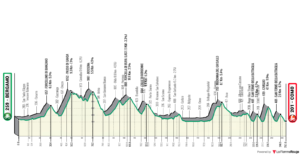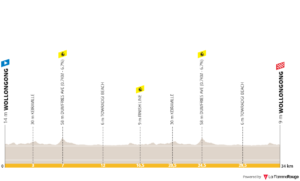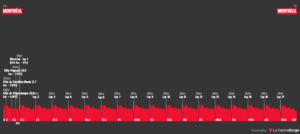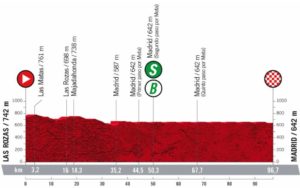Unsung Heroes of the Peloton (II): Albert Timmer
By David Hunter
At 30 years of age, Albert Timmer, is an experienced member of the bunch. He’s been at Giant since 2007, riding for Skil Shimano, Argos-Shimano, Team Argos-Shimano, Team Giant-Shimano and Team Giant-Alpecin. A permanent fixture in the squad, he brings bags of experience and a wise head.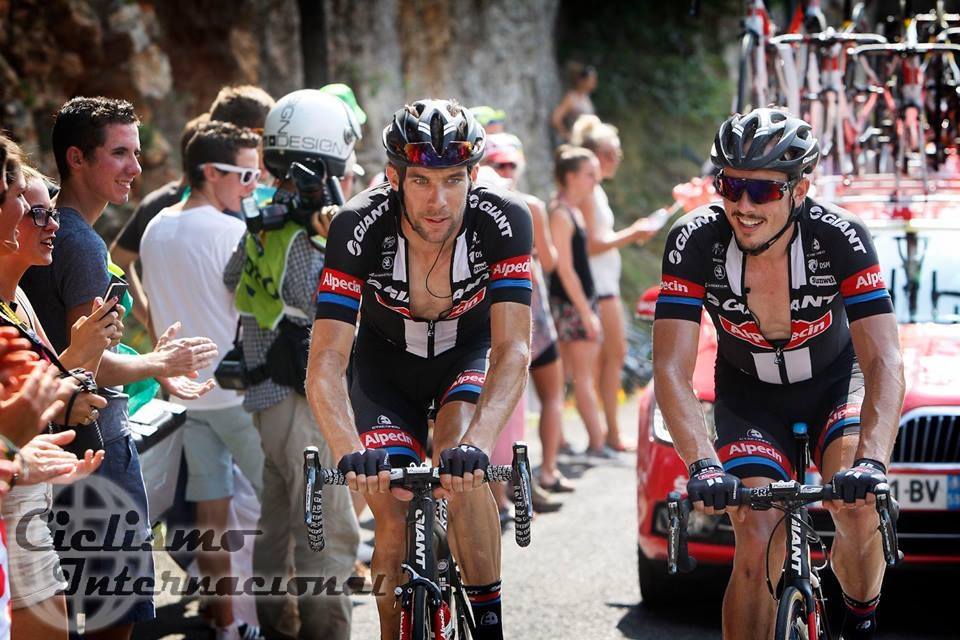
Timmer is the epitomy of an Unsung Hero. With no pro wins, this is a man who always works for others. Cycling is unique in many ways, but this role is special. Yes, it’s a team sport, but only one man stands on the podium. To dedicate your whole career to helping others deserves a huge amount of respect. You might not see much of him on the TV, but he is a vital part of the Giant machine, without him, Kittel and Degenkolb, would certainly not won as much as they have.
Albert’s role is clearly defined.
“In the sprint train I’m the one that makes sure everyone stays out of trouble in the last 10 km, till 2km before the finish (depends also on the plan that the team makes). During the classics, I bring the team into position before important points in the race. I make sure they are not spending energy before the finale. I do the same in grand tours, stay as long as possible with the climbers and help where I can, and of course, I help in the sprint preparation. Also, all the general things during the race: getting bottles from the car and waiting for the leader when they have problems with their bike.”
Timmer was part of the very successful, Marcel Kittel train, of 2014. He ensures that the train does not drift out of position, but stays close to the front. This isn’t easy, especially with 5 riders glued to your wheel! It was a role he excelled in, helping as Kittel took 13 wins. That included 2 wins in the Giro and 4 in the Tour, both races that Timmer completed. The best example is stage 3 of the 2014 Tour de France, finishing in London. Watch as Giant take control from 4km(3:56:20) to go.
His experience is vital in these big races and he is a regular choice for the Grand Tours, now having competed in 8 of them. His role in the Classics was slightly different in 2015, seeing him join the early break in Omloop and Gent-Wevelgem. Being the “sacrificial lamb” is never nice, but no one would have wanted to make the break in GW!
Filling a unique position, I was eager to hear about the strengths required for Albert’s role.
“You have to have the engine to ride a long time in the wind, you have to know how the bunch reacts before an important point or sprint. You have to stay calm, and always have to keep thinking what the next move is. Also, listen to your teammates, who are riding behind you.”
When riding at 70km/h, it’s hard to remain calm, but he must. As trains start to move from one side of the road to the other, you need to have the experience to anticipate what is going to happen and to be ahead of everyone else. The communication aspect is vital. You need to respond to the demands of your teammates, who can sometimes see something that you have missed. This is not an easy role to fill!
“I like it when we make a plan as a team, and it turns out how we planned! However, you can always challenge yourself, because even a day where everything is going as planned, there are always things that can be better.”
Here speaks a perfectionist! That’s the drive of a professional athlete. Never happy, always looking to challenge themselves, a wonderful mindset to have.
Time to talk bottle carrying records.
“I never counted it, but in general I take as much as needed. If we start with 8, I take always 8 and 1 or 2 extra. The Tinkoff vest is a good idea, I think, but I don’t know if it really works good. I think its faster to take a vest than every single bottle, one by one.”
Carrying 10 bottles seems to be a standard maximum amount. I will continue on until I find a rider capable of 11 or 12! On the topic of collecting items from the car, I asked Albert what his favourite musette treat was.
“On the really warm days, it’s a cold cola.”
Different teams have different ways of helping the riders gel together. It could be paint ball or climbing a mountain, but the riders must feel that they all belong.
“I would say it’s up to the riders to bond as a group, everbody adds something to that. The guys that I ride for are all good guys, they appreciate what we as a team do for them.”
“It’s not hard to stay motivated, not at all. As long as you can look honestly at yourself. Like I said before, it can always be better. There are always things to improve.”
Hardest working teammate?
“That’s really hard to say, as we all work hard. If I have to say one name, I would say Tom Stamsnijder.”
30 isn’t old for a cyclist, but you certainly have a lot of experience. I asked Albert would advice he would give to any young cyclists out there.
“Don’t make the decision to be a helper too soon. but if you do make the decision to be a helper, go 100% for it.”
Looking back at the footage of the 4th stage of the 2014 Tour of Britain, it must have been heartbreaking. Timmer was so close to his first pro win and can see his disappointment at the finishing line. Cycling can be a cruel sport.
Turing to the future, age will change the role that Albert fulfils in the team.
“I hope to use my experience more, to help the new riders in the team, and changing more into the captain role. That means, in the race, I will set out the lines with the team leader.”
Being the road captain is a hugely respected role within a team. Under the DS, you are “the boss”. You help to decide on strategy and play a massive role in every race. It seems to me that Albert would make a great road captain. You could certainly say he’s earned it.
David Hunter
Follow us on @CiclismoInter
Join us on facebook: Ciclismo Internacional
Copyright © 2015 Ciclismo Internacional. All Rights Reserved

